10 best LGBTQ movies of 2020, ranked
From Monsoon to The Boys In the Band to Happiest Season!
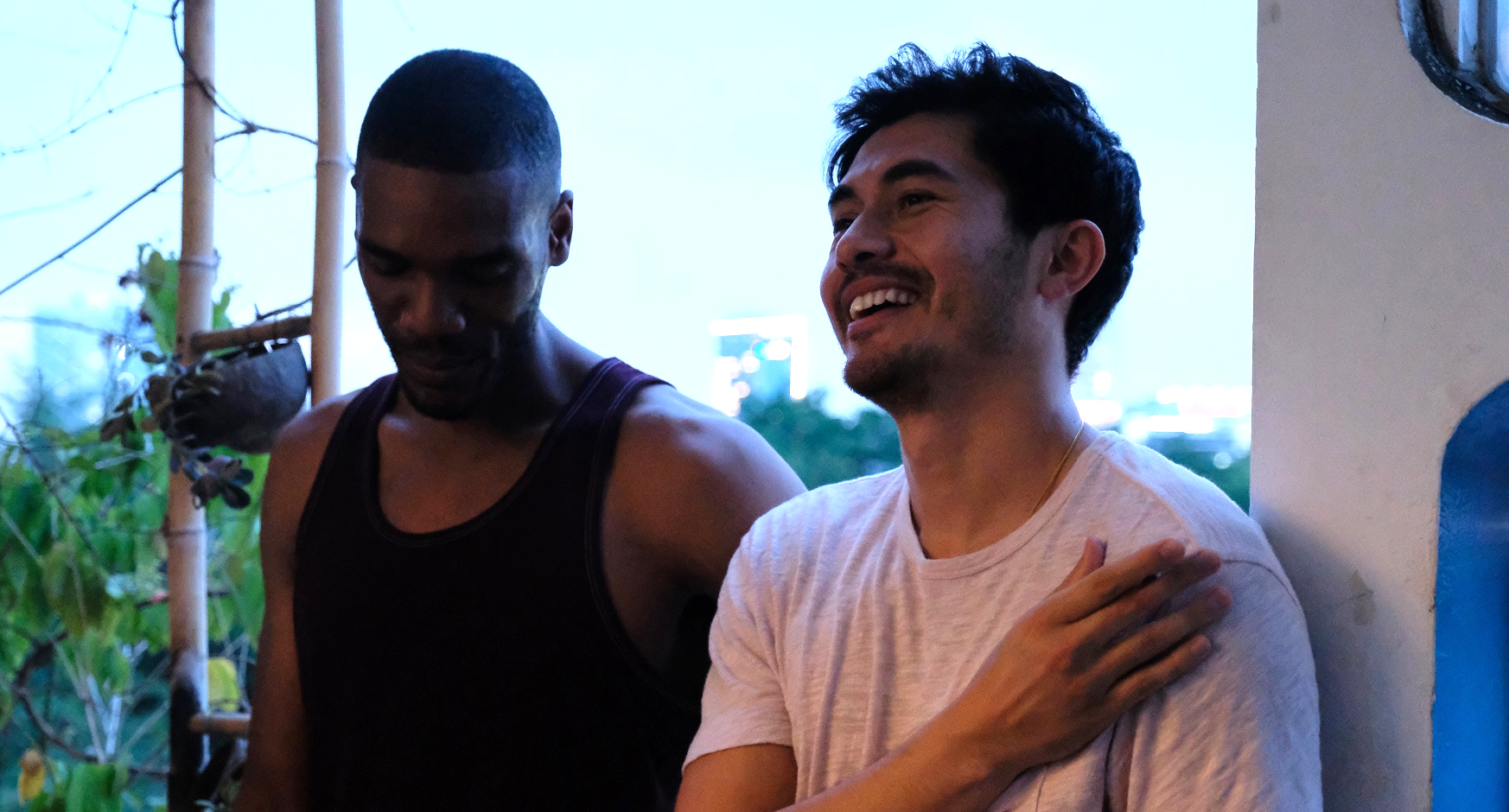
Words: Jamie Tabberer
Cinemas shuttered, franchises delayed, Tenet being GQ meets Nuts magazine, and not in a good way… 2020 has been a disastrous year for film.
But not, it must be said, for LGBTQ film – which we’re defining as any with prominent LGBTQ themes or characters.
In fact, 2020 has been a watershed moment for on-screen inclusivity: we’re more represented on TV than ever, while this year’s also given rise to the (streamed) gay blockbuster and seen LGBTQs take over the horror genre. Read on for our spoiler-heavy ranking of the best of the best.
Stuck for what to watch today? You soon won’t be…
10) The Prom
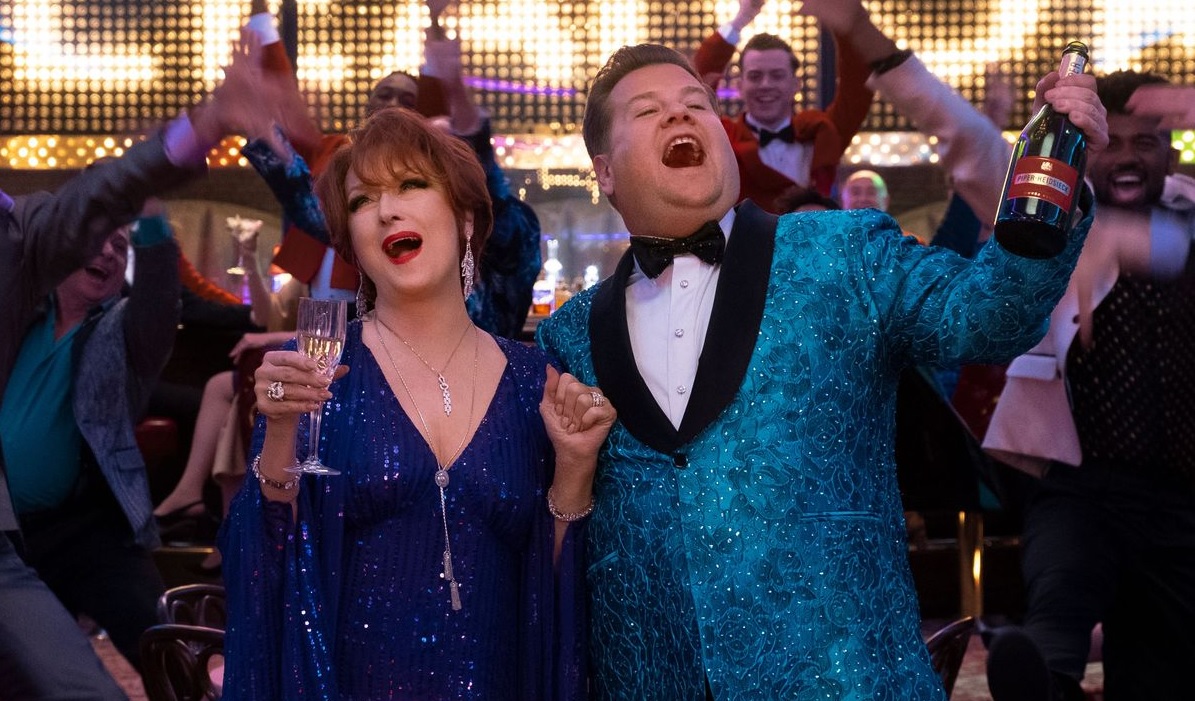
What to say of the woefully over-discussed visual spectacle that is The Prom? We’ll keep it brief. It should’ve been Ryan Murphy’s crowning glory. Instead it was a disaster for James Corden, whose high voltage camp prompted unprecedented controversy.
Now the dust – or sequins – have settled, let’s focus on the good: specifically, Meryl Streep as a zingy Broadway diva.
Nicole Kidman and Andrew Rannells also bring pizzazz in spades as faded theatre stars who hotfoot it to Indiana to help a gay teen excluded from her high school prom.
Forget the slightly 2D Glee-esque kids; the aforementioned stars make the film, and are clearly having a ball with their song and dance numbers.
9) Portrait of the Lady on Fire

If The Prom is too extra, Portrait of the Lady is subtle to a fault. A brooding, mysterious energy (and that name!) hint at a climax that proves elusive.
The plot – an 18th-century portrait artist falls for her subject; forbidden loves ensues – is also minimal. But who doesn’t love a hoop-skirted dress on a beach? The Piano, hello?!
Besides, the immaculate visuals and simplicity of the story amplify solid central performances. Adèle Haenel is the plucky Marianne and Noémie Merlant the sad, wistful Héloïse.
Expect intense gazes, flyaway strands of hair and a fierce all-female cast.
8) Monsoon

Another beautiful but understated film is Monsoon, in which Crazy, Rich Asians star Henry Golding plays likeable everyman Kit: a bereaved traveller who, in his home city of Ho Chi Minh City, forges a palpable connection with handsome stranger Lewis (Parker Sawyers).
Golding’s lovely, naturalistic acting is so immersive – think Tom Cullen and Chris New in Weekend – you almost feel you’re travelling with him. A banal meeting with a cute guy on a train, for example, is completely inconsequential but oh so true to life.
Still, over a slight 84-minute running time, Kit’s emotional journey feels under-expressed… and perhaps all the more lingering for it.
7) Ma Rainey’s Black Bottom
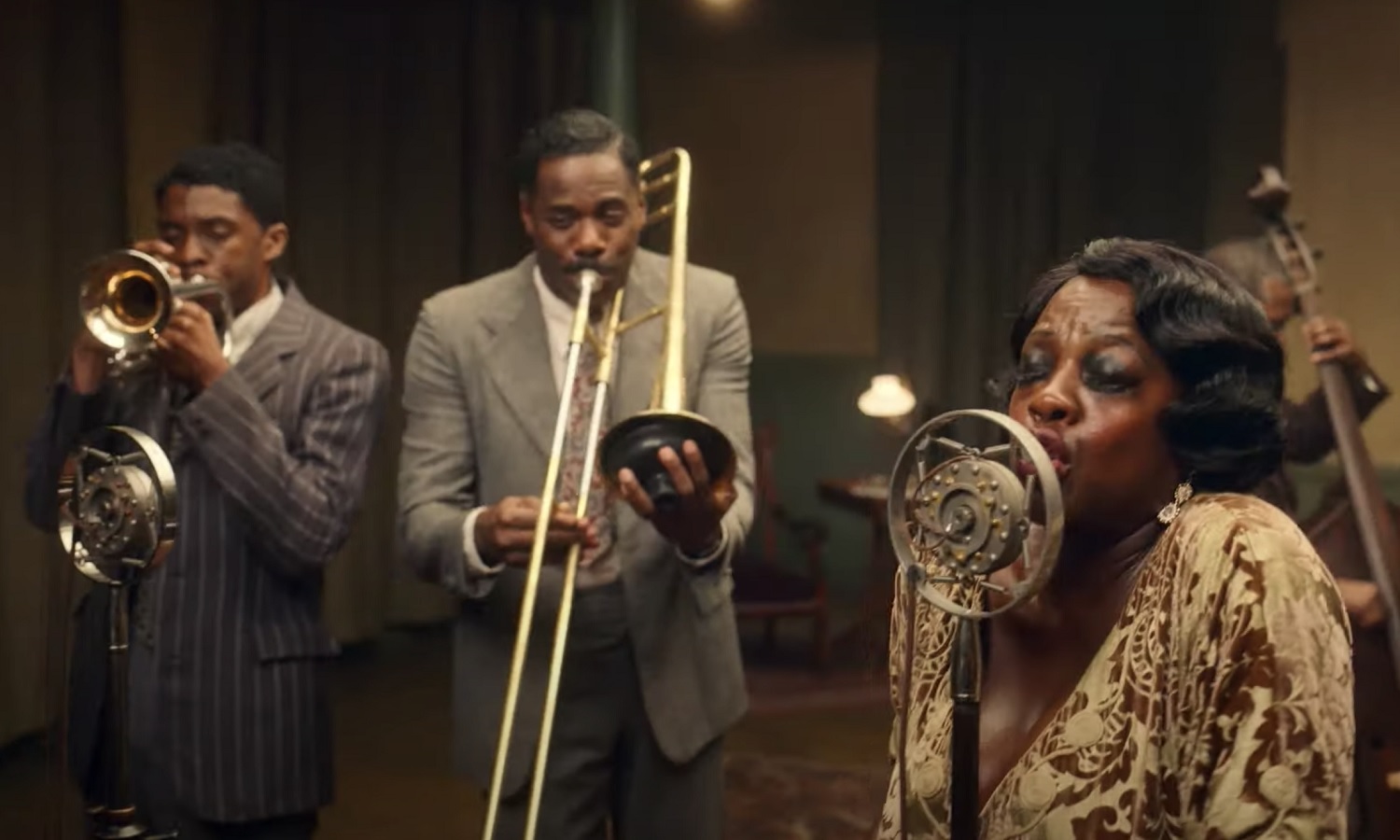
Another film that might’ve benefitted from an extra 10 or 20 minutes – although it’s no less powerful for its leanness – is this punchy, day-in-the-life tale about Mother of the Blues Gertrude Pridgett, or Ma Rainey.
Viola Davis is next-level magnificent in the titular role, which sees our grandiose star record an album and battle misogyny and racism one stressful, swelteringly day in 20s Chicago.
Taylour Paige is Ma’s fun and flighty girlfriend Dussie, although their relationship isn’t much explored; when cheekily brazen trumpeter Levee (Chadwick Boseman) catches her eye, though, the chemistry is electric.
Indeed, late Black Panther icon Boseman steals the show. His final screen performance is arresting, full of warring hope and despair. We just wish he and Davis were given a little more opportunity to interact, and the same for Davis and Paige.
6) Falling

James Corden was not the only famous straight guy playing gay this year… although The Lord of the Rings’ Viggo Mortensen courted considerably less controversy with his (pardon the pun) straight, sober performance in Falling, a film he also directed.
Like Monsoon and Portrait, and unlike The Prom and Ma Rainey, Falling is once again minor key: a quiet, contemplative ride that needs a glass of wine and your full attention to be enjoyed.
Mortensen plays John, a husband, father and son who stoically juggles all three roles when his ageing father Willis – an operatically grumpy Lance Henricksen – comes to stay.
An uncompromising study of dementia where sexuality is firmly a background theme – even if Willis’ histronic prejudice seems elemental – Falling is not an easy watch. But the acting’s superb, and the love between Willis and his granddaughter a guiding light.
5) Disclosure
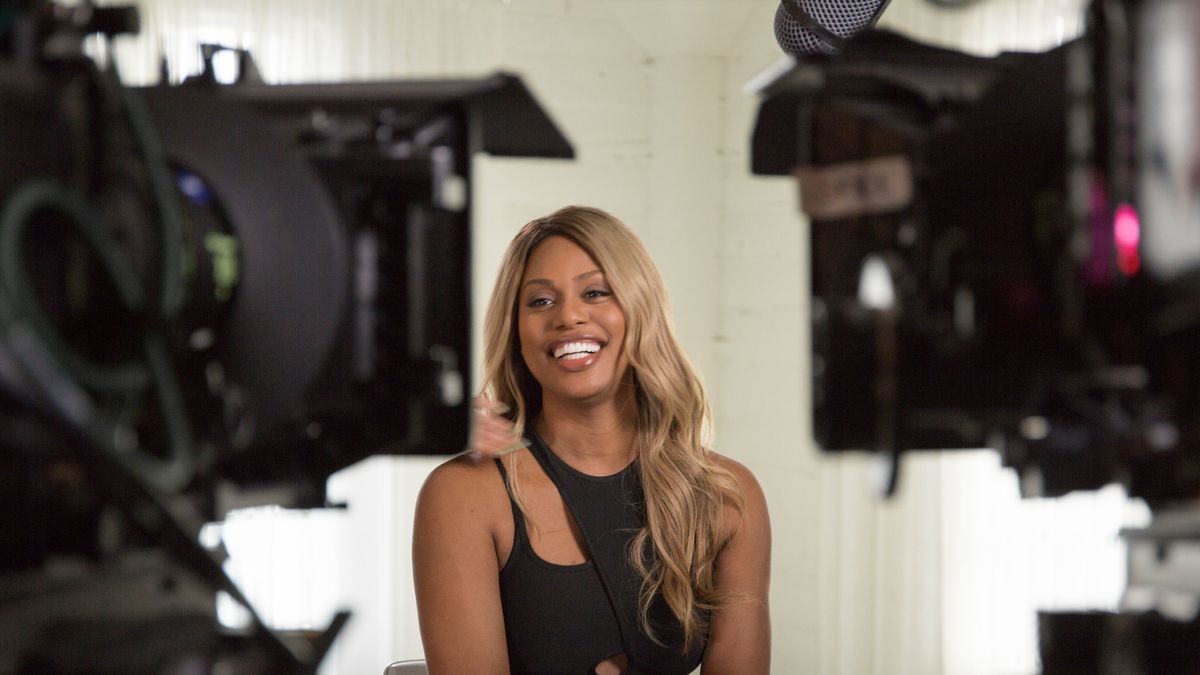
The abuse targeted at trans people from the media, social media and on the ground felt more toxic and relentless than ever this year. Take the horrific-sounding attack faced by Laverne Cox only this month. So, when reflecting on progress, it’s hard to see the wood from the trees.
Disclosure is a tonic to such numbness: a sharp, smart documentary about trans representation in TV and film that puts everything into crystal clear perspective.
In the doc, powerful industry players from Cox to Chaz Bono to Candis Cayne speak with eloquence and intelligence on the subject, while sharing their own lived professional experiences.
It conjures powerful emotions, from anger and guilt at the sickening jokes and stereotypes of yesteryear’s most beloved movies to sheer wonder at the pace of change of the last decade. Take Oscar-winning The Danish Girl, for example – it’s only five years old, and already hopelessly out of date.
4) The Boys In the Band

More golden Netflix content, and another Ryan Murphy-produced project. (He’s set to be as prolific in 2021, by the way). The Boys in the Band again boasts explosive casting, this time in the form of several household name actors who are gay playing gay.
It’s undeniably exciting to see Matt Bomer, Charlie Carver, Andrew Rannells and more sharing the screen; an extravagant Jim Parsons leads as tense Clarissa Dalloway character Michael, hosting a gaggle of self-hating gays for the birthday party from hell in 70s New York.
Sublime acting across the board – especially from an acidic Zachary Quinto – pushes the film to lofty heights; the guys have evidently marinated in the Broadway roles they’re reprising. It’s a chaos of emotion.
And as mean as many of them are, we want to learn more about these colorful characters. What happened next in their tortured lives? A TV show can’t be outside the realm of possibility…
3) End of the Century
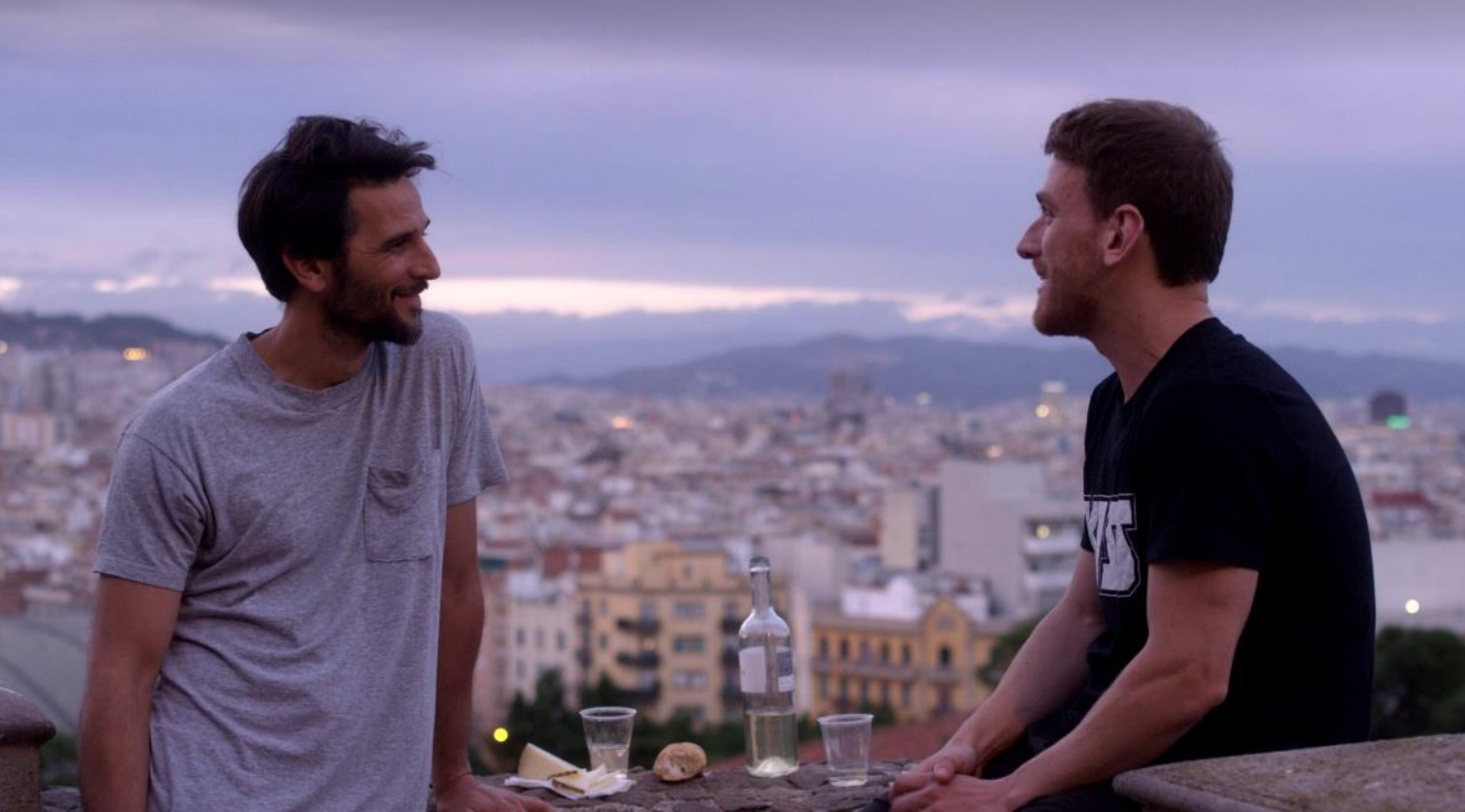
Another tale of seismic connections formed against the odds, End of the Century employs yet more gentle, lifelike tones – but eschews languor with a narrative that not only jumps time but, possibly, universes.
The film’s central premise is as word-of-mouth-friendly as it is preposterous: sweet lost soul Ocho (Juan Barberini) is a gay guy in his late 30s who enjoys a red hot hook up with smouldering stranger Javi (Ramon Pujol).
One photogenic hangout later, Javi drops a bombshell: they actually met 20 years before – under, you’d think, pretty unforgettable circumstances, maybe repressed by Ocho.
You have to admire End of the Century‘s scope: it’s in effect two guys having sex and chatting, à la Weekend, but its meaning grows exponentially as it asks direct, profound ‘what if?’ questions of its protagonists and the audience.
2) Happiest Season
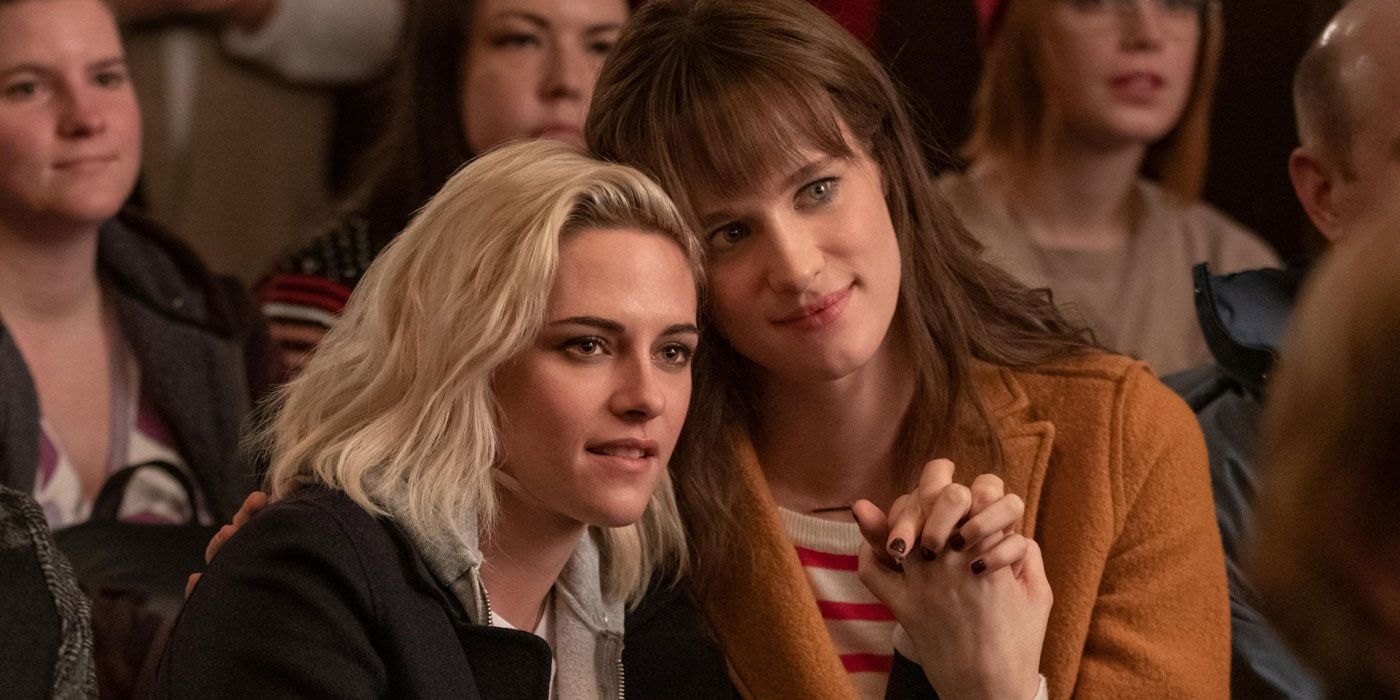
A Christmas-themed romantic comedy with cute lesbians instead of straights? This writer expected Happiest Season to be, at best, as bland and forgettable as its sub-genre stablemates; at worst, an insulting disaster.
Not so. Thanks to quality turns from Kristen Stewart as Abby and Mackenzie Davis as her on-screen girlfriend Harper, plus sparkling screenwriting/direction from But I’m a Cheerleader‘s Clea DuVall, this is not just the best festive rom-com in years… it’s the best rom-com in years.
In it, our cool and collected heroine Abby is forced back into the closet after she’s tricked in to spending Christmas with Harper’s conservative family: an appalling set of circumstances not solely played for laughs. In fact, the strain on the girls and their relationship is told in telling detail. There is no way a straight male director could have pulled this off.
The Mackenzie family’s toxicity is hideously beguiling. Especially that of her unbearably uptight mother, played to perfection by Mary Steenburgen. (“She’s fabulous!” insists Abby’s rather familiar best friend, played by Dan Levy.)
Their hideousness is so well-drawn, in fact, that the schmaltzy ending doesn’t ring true: people like this rarely change overnight. Elsewhere, Aubrey Plaza as Harper’s hometown ex is underused. These few flaws aside, this is required viewing for LGBTQ film fans and their families.
1) Saint Maud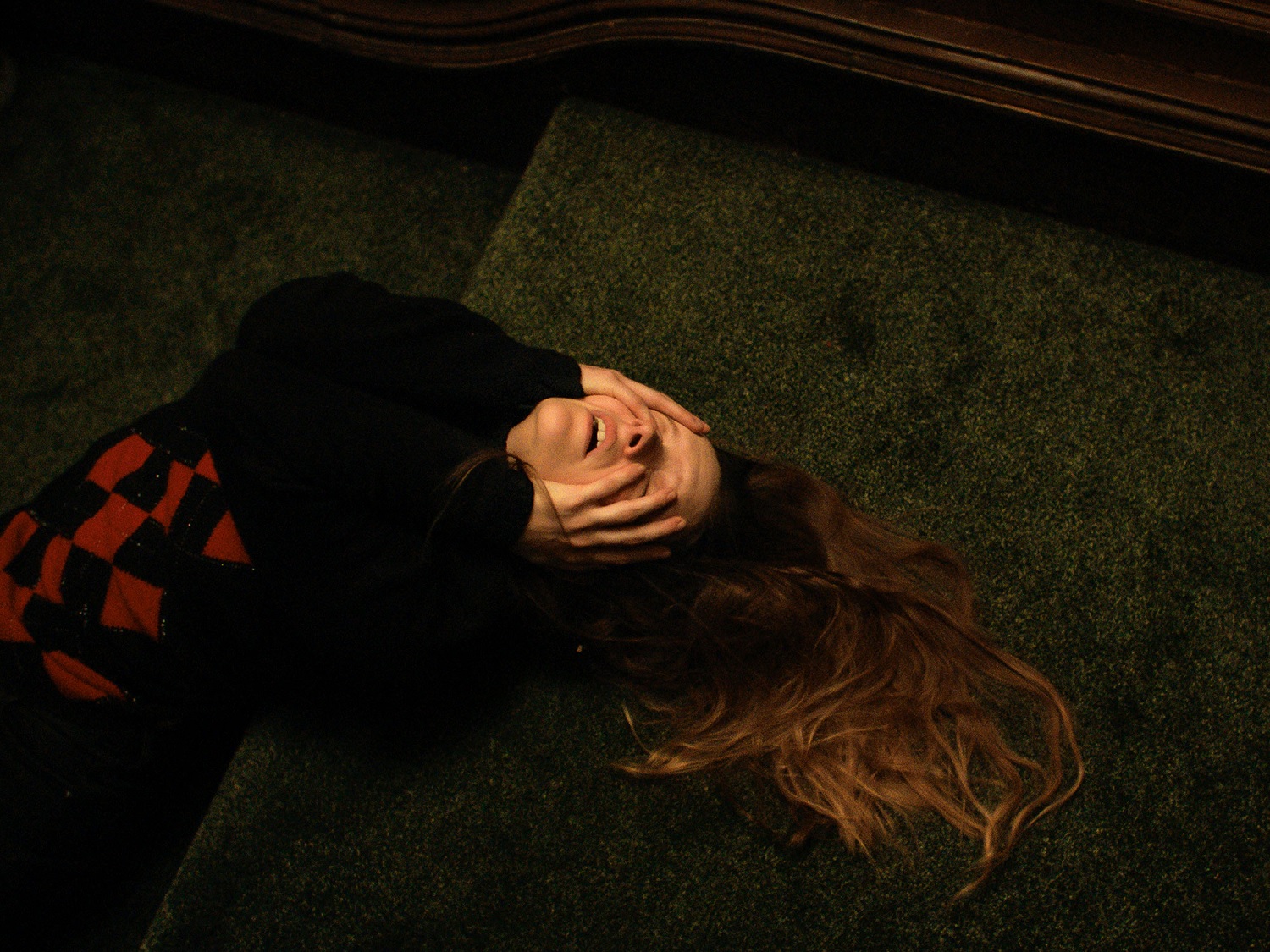
The atrociously-titled Hellbent aside, the horror genre has been historically unconcerned with LGBTQ characters.
This year’s super silly and inclusive slasher Freaky (number 11 on this list if we’d more time!) marks a sea change, however – as does Saint Maud, joining a growing pantheon of artful ‘elevated horror’ films of recent years, favouring truly adult themes like psychological terror over blood and gore.
In it, Morfydd Clark plays Maud, a friendless nurse and religious zealot adrift in a sleepy English seaside town, caring for glamorous former dancer Amanda (Jennifer Ehle), who’s in rapidly declining health.
Ehle is delicious as the self-possessed, worldly Amanda, determined to live it up until the bitter end, and whose taking of female lovers is by the by.
Clark, meanwhile, is mindblowing as Maud. She may or may not be straight, but that’s not the point: that she takes Ehle’s sexuality in her stride suggests her increasingly disturbing behaviour is about something other than sexuality. One gets the impression that Maud’s all-consuming madness would be just the same were she gay, straight or asexual… and that’s weirdly refreshing.
The two women’s effect on each other is both ambiguous and of monumental consequence, but the movie’s penetrating primary focus is always on the relationship between Maud and her god – or should that be Maud and her mind? Thus, themes of love, sex, gender, sexuality and beyond are rendered incidental.
For once, this is truly a fantastic film, which just happens to be a horror, where one of the main characters (or possibly two: who needs labels?) just happens to be queer. Support it.
